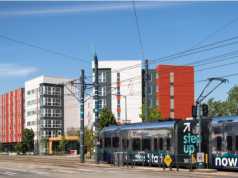Mayor Walsh Announces $3.2M in Funding to Protect Children from Lead Posoning
WASHINGTON, D.C. – September 14, 2015 – (RealEstateRama) — Mayor Martin J. Walsh announced today that Boston was selected to receive $3.2 million in funding from the US Department of Housing and Urban Development (HUD) that will be used to further reduce the risk of childhood lead poisoning in Boston.
“In Boston, we are continuing our work to ensure that our youngest residents are living in safe and healthy conditions,” said Mayor Walsh. “I would like to thank HUD and Secretary Castro for providing us with these resources to make significant improvements throughout our neighborhoods.”
The funding comes as part of a $101 million competitive HUD funding round which will be awarded to 32 city, county and state governments. These funds will protect families by targeting health hazards in more than 6,000 low-income homes with significant lead and/or other home health and safety hazards.
As part of this funding, Boston’s Lead Safe Boston program will be awarded $2,906,610 in Lead Hazard Control grant program funding and $325,000 in Healthy Homes supplemental funding. These funds will address lead hazards in 178 housing units, providing safer homes for low- and very low-income families with children. The Lead Hazard Control grant program will also perform healthy homes assessments in 70 units.
The City of Boston’s lead poisoning prevention efforts are led by the Mayor’s Department of Neighborhood Development and the Boston Public Health Commission, in partnership with the Mayor’s Office of Fair Housing and Equity, which investigates lead paint-related housing discrimination, Suffolk County Housing Court and a range of medical, community development, code enforcement, and lead paint advocacy partners with the goal of eliminating childhood lead poisoning in Boston.
Boston is a national leader in the effort to protect children from lead poisoning. According to the Boston Public Health Commission, the percentage of screened children with elevated blood lead levels has been steadily declining since 1995.
In 1995, the Boston Public Health Commission found that 13.5 percent of children screened for lead in the blood had elevated lead levels. By 2011, however, that number had declined to 0.7 percent, demonstrating Boston’s emergence as a national leader in lead prevention programs.
In 2014, the Massachusetts Department of Health found that 0.4 percent of children screened positive for elevated blood lead levels. While this number has declined, almost a quarter of housing discrimination cases the Office of Fair Housing & Equity receives are related to lead paint in rental homes.
The award from HUD is the 13th competitive federal funding award that the City’s Lead Safe Boston program has received since 1993. The funding, totaling more than $34 million, has enabled Boston to provide technical and financial assistance to more than 2800 homes citywide.
Mayor Walsh has also partnered with State Representative Jeffrey Sanchez in filing legislation that would strengthen existing lead laws to better protect our children’s health. H.2049, An Act Relative to Lead Abatement, would reduce the allowable lead exposure in homes, increase tax credits available to unit owners who wish to de-lead their properties, and increases the penalties for landlords who discriminate against renting to families with children.
HUD’s Office of Lead Hazard Control and Healthy Homes promotes local efforts to eliminate dangerous lead paint and other housing-related health hazards from lower income homes; stimulate private sector investment in lead hazard control; support cutting-edge research on methods for assessing and controlling housing-related health and safety hazards; and educate the public about the dangers of hazards in the home.
Residents who are concerned about lead paint in their home should call the Boston Home Center at 617.635.HOME or visit www.bostonhomecenter.com.
Mayor’s Press Office
617.635.4461




